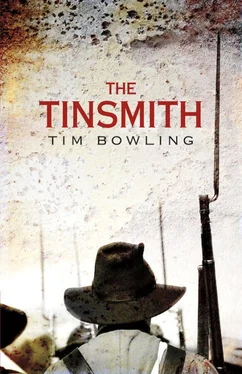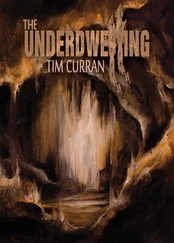It was a short passage, the shortest of his whole journey, but the doctor crammed a wilderness of reflection into it. In a way, he had lied to the agent by saying that he had no prospects in this place. The truth was, he had helped to finance Dare’s cannery operations from the first year, 1874, and he held shares in the venture, even though he did so out of friendship and not with any expectation of increased wealth. To date, the returns had been modest at best, but it was a young industry with a bright future. Anson’s understanding, limited to what he’d overheard while travelling the coast and to the sparse information in Dare’s rare correspondence, was that this year, the high point of the salmon’s four-year cycle, should be the most productive yet.
But it didn’t much matter to him, except in his sincere hopes that Dare would do well and perhaps make a permanent life here. Anson Baird prided himself on self-knowledge—to lie to yourself seemed to him the very height of folly. He was well into middle age, a widower with no children, and the illnesses that had ravaged him during the war would not grant him a long life. These were the facts. Others—especially that of Dare’s most recent communication, a telegram reading, “Difficulties here stop come as soon as able stop,” explained merely his physical actions. The larger issues of his solitude and poor health had already made him a dispassionate observer of the various madnesses of men. The war had preserved the union and freed the slaves—Anson had done his part, and he did not lack for pride in the contribution. But all madnesses after the surrender at Appomattox seemed small and petty by comparison. What mattered now was what he had accepted as his purpose at Antietam—to preserve one good man’s life in a world indifferent and even hostile to virtue.
They reached the wharf. As Anson climbed out of the skiff, another great clatter of bird-cry rolled across the southern horizon just beyond the dark, peaked roof of the house, which now looked to billow black smoke. Anson paused, stricken by the astonishing violence of the flocks. If he were superstitious, he might have considered the event a bad omen. But the sheer mass of dead flesh he had known left him more than skeptical of unbodied fancies, including God. Anson kept such doubts to himself, however. His patients would have neither understood nor appreciated them—and why upset a man who’d asked for your help?
As soon as the agent had set foot on the wharf, he clutched his collar around his throat and ducked his oily head. “I was told there’d be a hotel this time,” he muttered. “I’m accustomed to decent lodgings when I’m on business.”
“My wife keeps a good house,” Lansdowne said from the skiff. “You can board with us. Or you can return to the boat and find lodgings in New Westminster. I understand there are several hotels there that cater to those of more refined tastes.”
His scornful tone did not elude Anson, but the agent appeared not to notice.
“Perhaps. What time does the boat leave? I need to discuss business with your brother first.”
With impressive dexterity for a man of his years, Henry Lansdowne put his hands on the wharf and swung himself stiffly over the edge and into a standing position. Not even taking a deep breath, he immediately said, “My brother is working in the fields and will not stop until this evening. If you wish to talk with him, you must lodge here for the night. Or, if my wife’s housekeeping is not to your standards, you are free to shelter where you can.”
The agent looked dubiously skyward and tugged at his lapels. The great clatter of bird-sound had faded almost as rapidly as it had come—now the trickle of tide below and the whisper of wings above brought the day more comfortably together. Anson looked at the house—dark, square, a short walk from the wharf down a tilted gangway through a field of mud and slickened grass. Just to the southeast carved the pewter slough. Another house, equally dark, rested squat on the slough bank a half-mile distant. The wind carried a sour, brackish smell off the muddy bank. It seemed an unlikely place for a man to make his fortune.
Anson took up his bags and said, “I’m looking for the home of William Dare. Is it far?”
Henry Lansdowne hesitated just slightly. “Crescent Slough. Best to go by boat, but the tide’s against you now. Have to wait till morning.” His liquid eyes hardened to wet stone. “Are you expected?”
Anson admonished himself, remembering the telegram. The difficulties Dare had mentioned could refer to anything or anyone.
“Yes. But he didn’t know exactly when I’d arrive.” Anson shifted uncomfortably, lowered his bags to the wharf. It hadn’t occurred to him that he’d have trouble actually getting to Dare’s house. Was he to hire a skiff and row there himself?
“I can take you tomorrow,” Lansdowne said. “He doesn’t come to the Landing often.”
The agent, who had been waving a cloud of mosquitoes away from his face, suddenly went still.
“Dare, did you say?”
Annoyed with himself, Anson simply nodded.
“If you don’t mind the question, doctor, what could a man such as yourself want with a man such as that?”
Anson stepped forward. “What do you mean? A man such as what?”
The agent glanced at Henry Lansdowne and then away.
“Oh, nothing, nothing at all. Dare is just, well, he’s a little rough compared with yourself. How do you know him exactly?”
Anson could see no sense in answering, especially as the agent’s tone was almost excitedly curious. So, when the thunking of the shears sounded again, he allowed the noise to end the conversation. In the silence that followed, he bent and picked up his bags.
The agent shrugged slightly and flicked his burning cigar onto the wharf. “Damnable insects! I’ve had enough. I could use a drink.”
Lansdowne scowled. He stepped on the cigar butt with his boot and strode off toward the gangway.
“A cheerful chap,” the agent said. “He suits the place. But there’s no money to be made in the soft parts of the earth, eh, doctor? Come on, we might as well get indoors before the rain starts.”
Anson nodded and looked upriver where he adjudged Crescent Slough to be, given his host’s slight hand gesture. In the near distance, a ramshackle collection of shelters, constructed of driftwood and planks of uneven sizes, sprawled under three trickles of white smoke. A long dug-out canoe rested half out of the tide, its brightly painted bow vivid as a smear of lipstick against the bank reeds. Nothing moved except a lone mongrel that loped along the sloppy tidemark, stopping to sniff every few feet. Anson looked away from the dog. The overcast pressed greyly on the tin-coloured water, as if to contain the force of the tide. The rain now fell again in wisps. From the distant fields drifted a low moaning. Anson coughed twice, each one like a seizure, leaving him shaken, teary-eyed. When he could see clearly again, just as he started to walk to the gangway, he saw a boy and a girl approaching along the slough bank. He stopped, blinking rapidly several times. He’d have been no more surprised if a boy and a girl had stepped out of a woodlot at Antietam. The sight calmed him, as the presence of children always did. A place could not be so desolate with children in it. If Elizabeth had only given him a son or daughter. Well, it was best not to dwell on such things. He’d known many men who’d be only too happy as childless widowers instead of what they were—the heroic dead, remembered less with every passing year.
Anson watched the children’s slow progress for a moment. Then, lighter of heart, he followed the other men up the gangway.
Several hours later, Anson lay on a hard, narrow bed in an unadorned upstairs room of Henry Lansdowne’s house, listening to the night sounds through a partly opened window. For a while the hooting of an owl kept up a steady, ghostly rhythm. Then only the sucking of the tide at the pilings thirty yards away disturbed the silence. The night carried a powerful smell of wetness—mud, river, earth, with something brinish mixed in. It was heavy, anaesthetic. Anson almost succumbed to its weight on his face several times, but then he recalled Henry Lansdowne’s tight expression at the dinner table and opened his eyes wide again.
Читать дальше












